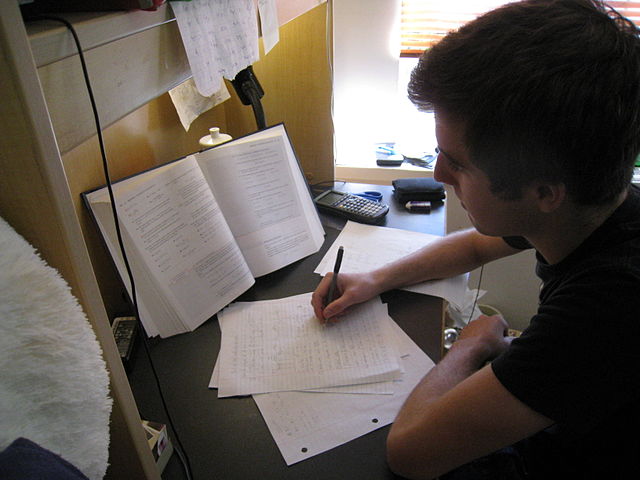How Not To Write An Assignment!
Common mistakes - and ways to avoid them
STUDY SKILLS
MTL Bennett
1/5/20254 min read


Introduction
Like it or not, writing assignments is part of the educational experience.
This is particularly true in a History degree, where the ability to demonstrate knowledge, evaluate evidence and make a case for something is crucial to gaining decent marks.
Weirdly though, it is very rare for universities to provide specific tuition in the process of writing an assignment itself. This can lead to many students making basic mistakes in their early assignments, costing them marks and tying up their tutor’s time.
So here are 15 of those mistakes that first-year students often make – and how to avoid them!
#1
Don’t ask your tutor for advice
Your tutors won’t give you any extra guidance, right?
WRONG!
Your tutor is a human being, remember. The last thing they want to do is waste time reading a badly-written assignment. Don’t make ridiculous demands but don’t be afraid to ask for help.
#2
Don’t look at the guidelines
The guidelines are a pain to read so why bother, right?
WRONG!
The guidelines will give you valuable pointers as to what areas to cover and where the marks will be earned. Use them!
#3
Leave it till the last minute
You’ll write better under pressure, right?
WRONG!
You’re far more likely to make mistakes and write badly if you leave it till the last minute. Better to prepare well and then give yourself enough time.
#4
Write it on the fly
Your high school teachers said you wrote beautifully. You can just let the words flow, right?
WRONG!
Good assignments require planning, organisation and balance. That doesn’t come naturally to anyone.
#5
Don’t look at your notes
You’ve absorbed all the relevant knowledge, and you’ll remember it when it comes to writing your assignment, right?
WRONG!
It’s important you look over your notes before you start writing. They will help you remember both the range of issues involved and provide links to further reading.
#6
Don’t do extra reading
Everything you need is in your notes. Re-reading or looking through additional texts is just wasting time, right?
WRONG!
You’ll need to demonstrate you have read and understood what historians have written about the subject. Carefully reading through the set books and related articles will deepen your understanding and thus improve the quality of what you write.
#7
Don’t prepare useful quotations
You’ve got a good memory. You’ll remember what was said and by whom when the time comes, right?
WRONG!
Keep a note of any quotations you think might be useful (along with where you came across them) – preferably in a separate file. That way you can have the details ready to hand as you write and don’t have to waste time and energy searching for them again.
#8
Write as much as you want
If you want to gain marks, then more is better, right?
WRONG!
The word limit is part of the assignment. You are not just being assessed on the strength of your argument but also on how concisely you make it.
#9
Don’t worry about structure
Your essay is a work of art. Your tutor doesn’t expect you to write in a particular way, right?
WRONG!
It’s important to have a clear and consistent structure to what you write. You’re trying to demonstrate your understanding of the subject and the range of answers possible to the question. That requires you be clear and concise.
#10
Don’t use signposting
Your essay makes perfect sense to you so it will to your tutor, right?
WRONG!
A good assignment requires a clear introduction with a roadmap for your tutor to follow. Making it easier for your tutor to understand what you are intending to write saves them effort and helps them award you good marks.
#11
Don’t worry about covering everything
There are so many things to write about. You can’t be expected to cover everything, right?
WRONG!
A good assignment aims to be comprehensive but balanced, giving enough treatment of all the issues involved. This is one of the key ways you gain marks.
#12
Write more about the things that interest you
You’ll show enthusiasm and thus gain more marks by concentrating on the things you want to talk about, right?
WRONG!
At this level, your tutor is looking for you to demonstrate an ability to make a balanced, comprehensive case for something. Assignments skewed towards one area will not receive good marks.
#13
Don’t worry about referencing
This isn’t for publication so referencing doesn’t matter, right?
WRONG!
It is always necessary to give clear and accurate references for any assertions or arguments made. This is not just to avoid plagiarism, but also so a tutor can check where you are getting your assertions and arguments from.
#14
Don’t bother proof-reading
Phew! You’ve finished! Just send it off now, right?
WRONG!
There could be lots of typos and other simple mistakes in what you’ve written. Reading through and correcting any of these will make it easier for your tutor to read and more likely to award better marks.
#15
Answer the question!
If the assignment involves a question, you know you have the answer. Your tutor wants to know your personal take, right?
WRONG!
You’re not an historian yet, so you need to show respect. Prove that you understand how historians have answered this question (and interpreted the issues involved) instead.
Summary
Writing assignments is a crucial element of your coursework so make sure you approach producing them correctly.
Avoid common mistakes and follow the tips in this guide to help you save time and gain the maximum scores available!
This article was written by MTL Bennett in November 2024 and updated in May 2025.
This is a FREE article. If you found it useful, please consider buying the author a coffee to help them keep going! Donate here: https://ko-fi.com/historyskillsuk









